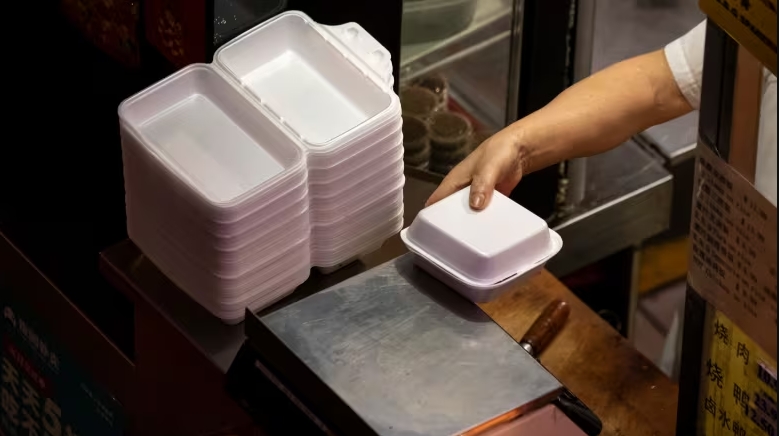Navigating the Plastic Predicament: Lessons from Canadian Communities
Banff, Montreal have ambitious policies; some rules repealed in Calgary, Vancouver
Across Canada, communities are trying out single-use plastic bans, fees and other policies to reduce plastic pollution.

Global plastic consumption has quadrupled in the past 30 years, and only nine per cent is being recycled, the OECD reports. That's the case even in Canada. The rest is landfilled, littered or incinerated — and a federal move to ban six kinds of single-use plastic items is facing a legal setback.
Emily Robinson, a researcher at the University of Guelph who studies sustainability in food service operations, says recycling isn't enough to deal with the scale of the problem, and we need to "turn off the tap."
Montreal and Banff emerge as beacons of progress, spearheading ambitious policies to curb single-use plastics. Montreal's comprehensive ban on a wide array of disposable items, implemented in March 2023, boasts an impressive 92 per cent compliance rate within a year. Similarly, Banff's proactive approach includes an ask-first policy and incentives for reusable alternatives, signaling a commitment to environmental stewardship amidst the challenges of waste management in a tourist-heavy locale.
However, not all initiatives have yielded positive outcomes. Calgary and Vancouver faced setbacks, with both cities retracting certain single-use plastic regulations in response to public pushback. Calgary's decision to repeal its ask-first bylaw underscores the complexities of implementing such measures, while Vancouver's abandonment of a single-use cup fee highlights the need for adaptive strategies tailored to local contexts.
Amidst the ebb and flow of policy experimentation, experts advocate for a holistic approach centered on collaboration and innovation. Reward systems, such as discounts for reusable alternatives, offer promising avenues for behavior change, while support for reuse infrastructure fosters a transition to a circular economy. Moreover, initiatives that prioritize community engagement and long-term sustainability are more likely to garner widespread support and yield lasting impact.
As Emily Robinson, a researcher at the University of Guelph, emphasizes, the solution lies in collective action and a shift towards prioritizing the common good over short-term convenience. By aligning the interests of businesses, governments, and the public, communities can chart a course towards a greener, more sustainable future—one where plastic pollution becomes a relic of the past.




